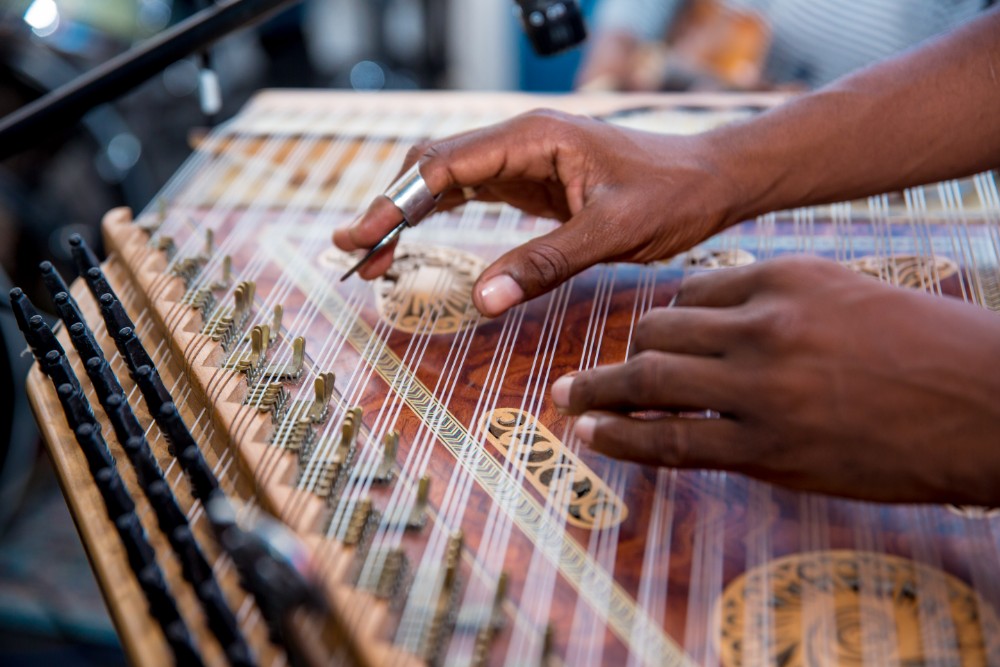Across East Africa, a repressive tide against freedom of expression continues to rise through punitive laws being passed by the day. On 5 June 2020, the Kenya government printer published the Statute Law (Miscellaneous Amendments) Bill 2020 which includes proposed changes to the Film and Stage Plays Act 1962 (Cap 222) to give the Kenya Films and Classification Board (KFCB) more powers in censorship of critical creative content. The deadline for submission of memoranda to the national assembly on this bill was limited to one month with a deadline of 14 July 2020. In Tanzania, the Electronic and Postal Communications Act, (EPOCA) on Online Content Regulations 2020 was published on 17 July 2020 further strengthening restrictions on freedom of expression by using ‘morality’ and national security grounds.
Regulatory institutions muzzling creatives
KFCB foresees the Statute Law (Miscellaneous Amendments) Bill 2020 as a new ‘muscle’ to revise its mandate in two major ways that would continue to restrict artistic freedom of expression. First, it would like to regulate the creation, broadcasting distribution and exhibition of all types of films as opposed to the initial approach in the Film and Stage Plays Act 1962 (Cap 222) where it only regulates cinematography films. Secondly, this new amendment will see it regulate the ‘broadcasting’ of these films, a development that would highly affect live streaming and live blogging activities by creatives on platforms such as social media.
This is not the first time that KFCB has attempted to introduce legislation that has found disfavour amongst relevant practitioners. In fact, a more retrogressive legislation was thwarted in 2017 after practitioners from the larger creative sector came together to call for its dismissal in entirety because of harsh provisions and also overly punitive sanctions for a struggling and underfunded sector.
Repressive laws now targetting online content
Increasingly due to the uptake of digital technologies and tools in the production and promotion of content, creatives are being regulated from an additional front – the communications and technology facet. In Kenya, production and promotion of film is regulated by KFCB which is additionally now looking at regulating broadcasting of content, a domain known to be under the Communications Authority as provided for in the Kenya Information and Communications Act.
In Tanzania, the Tanzania Communications Regulatory Authority (TCRA) and Baraza la Sanaa la Tanzania (BASATA) have both censored content in the past and the recently published EPOCA regulations further criminalizing defamation (section 2.b of 3rd schedule), and introducing unclear arbitrary grounds for suspension and withdrawal of licenses (section 8.1)
In 2017, charges of offensive communication targeting the Ugandan President were brought forward against musician David Mugema and his music producer Jonah Muwanguzi. Mr. Mugema was charged for allegedly composing, recording, producing and disseminating through social media a song titled Wumula. It is alleged that the producer and the musician attacked and disturbed the peace of President Museveni with no legitimate reason to substantiate this. More recently in the past year, concerts and other gatherings by popular musician and legislator Bobbi Wine have been called off because of the tone and voice against the government.
Hivos as an ally of creatives
The power of art in transforming societies through edutainment – a crucial communication practice that fuses entertainment and education- has worked globally in shifting mainstream negative narratives around divisive topics like women’s rights through the production and promotion of audio-visual content. An example from the cohort that Hivos has worked with has been the success of Zanzibar musician Siti and the band, whose music champions women’s empowerment and has grown to become a source of inspiration for Zanzibari girls who would like to pursue music as a career.
Since 2017, Hivos has been supporting creatives, amongst them film makers, to produce content that boldly charges at socio-political issues through offering critical counter-hegemonic messaging- this is in addition to its support to the industry for close to 10 years in East Africa. Critical content exudes provocative narrative covering a wide array of social issues such as tribalism, importation of second hand clothing at the expense of local fashion and textile industries, police brutality, corruption, enforced disappearances, repatriation of artefacts from foreign museums, challenges faced by persons with disabilities, addressing the plight of sexual and gender minorities and sex workers amongst others. In Kenya, Hivos’ financing to creatives to support their sustainability amounts to a tune of 32.2 million Ksh (253,600 Euros).
In 2020, it is commendable that there have been defragmented energies from film makers, play writes, visual artists, animators, and other types of creatives to safeguard the gains made in the sector while also expanding the scope and impact of the industry domestically and regionally. In this regard, the efforts of the Creative Economy Working Group and the Resili-Art Kenya, East Africa, and Africa platforms are laudable.
Restoration of trust and credibility
There’s need to make the regulatory practices of bodies like KFCB, BASATA, and the Media Council of Uganda more transparent, inclusive and participatory. In all of the 3 institutions, the board and secretariat members have been distant which is ironical given that they’re appointed custodians of the fragile creative sectors they’re mandated to protect. They have appeared largely unresponsive to information requests despite Uganda, Tanzania and Kenya all having access to information legislation mandating them to proactively disclose information and honor information requests.
As important as it is, critical content is clearly under threat from these seemingly high and disruptive censorial tides. To safeguard their production, policies relating to content production and promotion need to be aligned to international best practices when it comes to freedom of expression as a human right.




